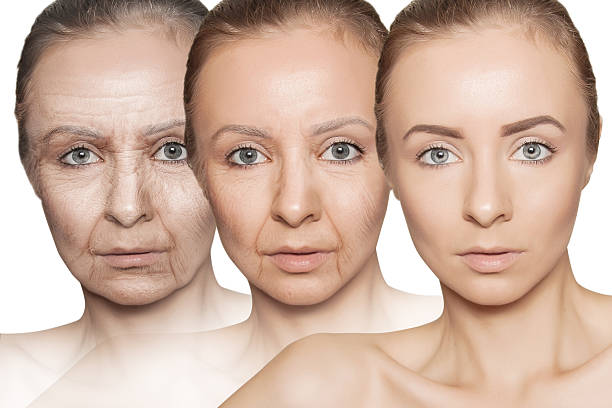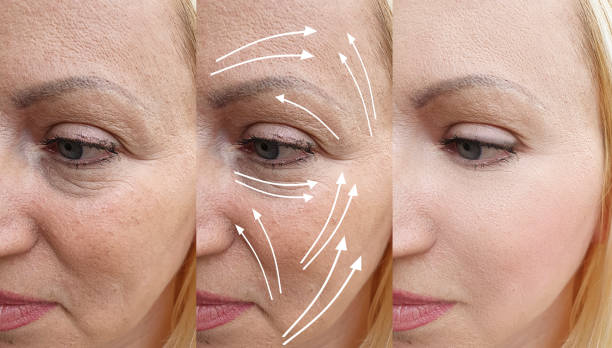
I’ll be honest with you – I never thought I’d be the type of person obsessing over anti-aging supplements. But here I am, three years into what I call my “longevity journey,” and let me tell you, it’s been one hell of a ride.
It all started when I caught myself in the mirror one morning and noticed these little crow’s feet that seemed to have appeared overnight. I was 38 at the time, and suddenly I felt like Father Time had snuck up on me with a baseball bat. That’s when I dove headfirst into the world of anti-aging supplements, and boy, did I make some expensive mistakes along the way.
The Wake-Up Call That Changed Everything
Three years ago, I was scrolling through social media when I stumbled upon a post about David Sinclair’s anti-aging protocol. You know, the Harvard scientist who looks like he’s in his 30s despite being in his 50s? Yeah, that guy. I spent the next four hours going down a rabbit hole of longevity research, and by the end of it, I was convinced that aging was basically optional.
The next day, I marched into my local supplement store with a shopping list that looked like a chemistry textbook. I dropped $400 on what I thought was going to be my personal fountain of youth. Spoiler alert: it wasn’t that simple.
My First (Expensive) Lesson in Anti-Aging Supplements
Let me tell you about my first major screw-up. I bought this fancy “anti-aging complex” that promised to reverse cellular damage and boost my NAD+ levels. The bottle was sleek, the marketing was convincing, and the price tag was astronomical – $120 for a month’s supply.
I took those pills religiously for two months, expecting to wake up looking like I’d traveled back in time. Instead, I woke up with an upset stomach and a significantly lighter wallet. The problem? I had no idea what I was actually taking or why. I was just throwing money at the problem without understanding the science behind it.
That’s when I realized that the anti-aging supplement industry is a bit like the Wild West – lots of promises, not a lot of regulation, and plenty of snake oil salesmen ready to part you from your money.
The Science Behind Anti-Aging Supplements (What Actually Works)
After my initial failure, I decided to get serious about understanding the research. I spent months reading studies, listening to podcasts, and trying to separate the wheat from the chaff. Here’s what I learned about the supplements that actually have some science behind them.
NMN and NAD+ Boosters: The Cellular Energy Revolution
NMN (nicotinamide mononucleotide) became my first real success story. This stuff is like rocket fuel for your cells’ mitochondria. I started taking 500mg daily, and within about six weeks, I noticed something interesting – my energy levels were more consistent throughout the day.
The science is pretty compelling too. NAD+ levels naturally decline as we age, and NMN helps boost them back up. Studies show that NMN can improve insulin sensitivity, enhance cognitive function, and even help with cardiovascular health. But here’s the kicker – good NMN is expensive, and there’s a lot of fake stuff out there.
I learned this the hard way when I bought a cheap NMN supplement online and felt absolutely nothing. Turns out, third-party testing revealed it contained about 20% of the claimed NMN content. Now I only buy from companies that provide detailed lab reports and use sublingual forms for better absorption.
Resveratrol: The Red Wine Miracle (Sort Of)
Resveratrol was the next supplement I tackled, mainly because it’s what got David Sinclair famous in the longevity world. This polyphenol found in red wine and grapes has some impressive research backing it up. Studies show it can activate sirtuins – proteins that help regulate cellular health and longevity.
But here’s what nobody tells you about resveratrol: absorption is terrible. I was taking 500mg daily and wondering why I wasn’t feeling any different. Then I learned about bioavailability issues and started taking it with a fat source (usually my morning coffee with MCT oil). The difference was noticeable within a few weeks.
I also discovered that trans-resveratrol is what you want, not the cheaper cis form. And combining it with quercetin seems to enhance its effects. These little details matter, but most people (including my past self) just grab whatever’s cheapest on Amazon.
Curcumin: The Golden Anti-Inflammatory
Curcumin has been my most consistent performer. This golden compound from turmeric is like nature’s ibuprofen, but better. The anti-inflammatory effects are well-documented, and chronic inflammation is basically the root of most aging-related diseases.

I take 1000mg daily with black pepper extract (piperine) to enhance absorption. The difference in my joint health has been remarkable – I used to wake up stiff every morning, and now I bounce out of bed like I’m 25 again.
But here’s a pro tip I wish someone had told me earlier: not all curcumin supplements are created equal. Look for BCM-95 or Meriva forms, which have much better bioavailability than standard curcumin extracts.
The Supplements That Surprised Me
Taurine: The Unexpected Game-Changer
Taurine wasn’t even on my radar until I read about some recent research suggesting it might be a key player in the aging process. I was skeptical – I mean, it’s the stuff in energy drinks, right? But the science is actually pretty fascinating.
I started taking 2g daily, and within a month, I noticed better sleep quality and improved exercise recovery. Recent studies show that taurine levels decline with age, and supplementing might help with everything from heart health to brain function. It’s become one of my non-negotiable daily supplements.
Omega-3s: The Foundation Everyone Overlooks
This might sound boring, but high-quality omega-3s have been one of my best investments. I’m talking about the good stuff – molecularly distilled fish oil with high EPA and DHA content. I take 2g daily, and the effects on my skin, joints, and cognitive function have been subtle but significant.
The key is finding a brand that third-party tests for heavy metals and provides the actual EPA/DHA content, not just total fish oil. I learned this after buying a cheap brand that made me burp fish all day – not exactly the anti-aging experience I was going for.
The Dark Side of Anti-Aging Supplements
Let me be real with you for a minute. The supplement industry is full of predators who prey on our fear of aging. I’ve probably wasted over $2000 on supplements that did absolutely nothing except make expensive urine.
The Antioxidant Myth
Early in my journey, I bought into the idea that more antioxidants equals better aging. I was popping vitamin C, E, and selenium like candy. What I didn’t realize is that our bodies actually need some oxidative stress to function properly. Too many antioxidants can actually interfere with beneficial cellular processes.
I learned this after reading about hormesis – the idea that small amounts of stress actually make us stronger. Now I focus on compounds that support my body’s natural antioxidant systems rather than flooding it with synthetic antioxidants.
The Testosterone Trap
As a guy in his 40s, I was an easy target for testosterone-boosting supplements. I spent months taking D-aspartic acid, tribulus terrestris, and other “natural T-boosters.” The result? Absolutely nothing except a lighter wallet and some digestive issues.
The truth is, most natural testosterone boosters are either ineffective or have such small effects that they’re not worth the money. If you’re concerned about testosterone, get it tested and talk to a doctor about real solutions.
Building an Effective Anti-Aging Supplement Stack
After three years of trial and error, here’s what actually works for me. Remember, this is my personal protocol based on my research and experience – always consult with a healthcare provider before starting any new supplement regimen.
My Daily Foundation
Morning Stack:
- NMN: 500mg sublingual
- Resveratrol: 500mg with MCT oil
- Omega-3: 2g high-quality fish oil
- Vitamin D3: 4000 IU with K2
- Magnesium glycinate: 400mg
Evening Stack:
- Taurine: 2g
- Curcumin: 1000mg with piperine
- Melatonin: 0.5mg (yes, less is more)
The Timing Game
Timing matters more than most people realize. I take my NMN and resveratrol in the morning because they’re supposed to work with your circadian rhythm. The magnesium and taurine go in the evening because they help with sleep quality.
I also cycle certain supplements. I take a week off every month to prevent tolerance and give my body a break. This is especially important with things like melatonin and adaptogens.
What to Look for When Buying Anti-Aging Supplements
Third-Party Testing is Non-Negotiable
After getting burned by fake supplements, I now only buy from companies that provide detailed lab reports. Look for testing for:
- Potency verification
- Heavy metal contamination
- Microbial testing
- Proper identification of ingredients
Bioavailability Matters More Than Dosage
A 1000mg supplement that your body can’t absorb is worthless compared to a 100mg supplement with enhanced bioavailability. Look for:
- Liposomal formulations
- Enteric-coated capsules
- Synergistic compounds (like piperine with curcumin)
- Proper timing recommendations
Avoid the Kitchen Sink Approach
Those “anti-aging complexes” with 47 different ingredients? They’re usually junk. You’re better off with targeted, high-quality single ingredients or simple combinations. Most complex formulas use pixie dust amounts of active ingredients.
The Lifestyle Factors That Actually Matter
Here’s something the supplement industry doesn’t want you to know: lifestyle factors matter way more than any pill you can take. I learned this the hard way when I was popping dozens of supplements but still eating like garbage and sleeping four hours a night.
Sleep: The Ultimate Anti-Aging Hack
No supplement can replace quality sleep. I spent a year optimizing my sleep hygiene, and it had a bigger impact on how I look and feel than any supplement ever did. Good sleep is when your body does most of its repair work.
Exercise: Your Natural Anti-Aging Pharmacy
Regular exercise – especially resistance training – is like taking a dozen anti-aging supplements at once. It boosts growth hormone, improves insulin sensitivity, and triggers beneficial cellular stress responses. I lift weights three times a week and walk daily, and it’s been transformative.
Stress Management: The Silent Ager
Chronic stress will age you faster than anything else. I learned meditation, started journaling, and set better boundaries at work. The impact on my overall health has been profound, and it didn’t cost me a penny.
The Future of Anti-Aging Supplements
The field is evolving rapidly. New compounds like urolithin A, spermidine, and various senolytics are showing promise in early research. But I’ve learned to be cautiously optimistic rather than jumping on every new trend.
What’s Coming Down the Pipeline
I’m keeping an eye on:
- Senolytic compounds that clear damaged cells
- Mitochondrial-targeted antioxidants
- Peptides for cellular repair
- Microbiome modulators
But I’m not rushing to try everything new. I’ve learned that patience and skepticism serve me better than enthusiasm when it comes to supplements.
Common Mistakes I See People Make
Mistake #1: Expecting Overnight Results
Anti-aging supplements work slowly. Don’t expect to look 20 years younger after a month. I judge supplements over 3-6 month periods, not weeks.
Mistake #2: Ignoring Dosage and Timing
Taking random amounts at random times is a recipe for disappointment. Research optimal dosages and timing for each supplement.
Mistake #3: Not Tracking Results
I keep a simple log of how I feel, my energy levels, and any changes I notice. It helps me identify what’s actually working versus what’s just placebo effect.
Mistake #4: Buying Based on Marketing
Fancy packaging and celebrity endorsements mean nothing. Focus on the science and third-party testing.
The Psychology of Anti-Aging
Let’s talk about the elephant in the room – the psychological aspect of anti-aging supplements. Part of their benefit might be placebo effect, and you know what? I’m okay with that. If taking supplements makes me more conscious of my health and motivates me to make better choices, they’re worth it.
But I’ve also learned to manage my expectations. These supplements aren’t magic bullets. They’re tools that might give you a small edge when combined with healthy lifestyle choices.
My Biggest Lessons After Three Years
- Quality over quantity: I’d rather take five high-quality supplements than twenty cheap ones.
- Consistency beats intensity: Taking supplements regularly is more important than taking massive doses sporadically.
- Listen to your body: If something doesn’t agree with you, stop taking it regardless of what the research says.
- Invest in testing: Getting blood work done twice a year helps me track what’s actually working.
- Patience is key: Anti-aging is a marathon, not a sprint.
The Bottom Line on Anti-Aging Supplements
Are anti-aging supplements worth it? For me, the answer is yes – but with major caveats. They’re not miracle cures, and they’re certainly not substitutes for a healthy lifestyle. But when used intelligently, they can be valuable tools in your anti-aging arsenal.
The key is approaching them with realistic expectations, doing your research, and being willing to invest in quality. Don’t expect to look 20 years younger, but you might feel more energetic, recover better from exercise, and age more gracefully overall.
Most importantly, remember that aging isn’t the enemy – it’s a natural process that we can influence but not stop. The goal isn’t to live forever; it’s to live well for as long as possible.
After three years of experimentation, I’m spending about $150 per month on supplements that I genuinely believe are helping me age better. That’s a fraction of what I was spending when I started, but the results are infinitely better because I’m smarter about my choices.
The anti-aging supplement world will continue to evolve, and I’ll continue to adapt my protocol based on new research. But I’ll do it with the wisdom I’ve gained from my mistakes and the knowledge that there’s no substitute for the fundamentals of health.
If you’re thinking about starting your own anti-aging supplement journey, learn from my mistakes. Start small, focus on quality, and remember that the best anti-aging strategy is living a life you’re excited to extend.
Frequently Asked Questions
Q: What are the most effective anti-aging supplements backed by science? A: Based on current research, NMN, resveratrol, curcumin, omega-3 fatty acids, and vitamin D3 show the most promise. However, effectiveness varies by individual, and supplements should complement, not replace, healthy lifestyle choices.
Q: How long does it take to see results from anti-aging supplements? A: Most people notice subtle changes within 6-12 weeks of consistent use. Energy levels and sleep quality often improve first, followed by skin health and exercise recovery. Don’t expect dramatic visible changes – anti-aging supplements work gradually.
Q: Are expensive anti-aging supplements worth the cost? A: Quality often correlates with price, but expensive doesn’t always mean better. Look for third-party testing, proper dosages, and bioavailable forms rather than flashy marketing. A $30 high-quality supplement can be more effective than a $100 inferior one.
Q: Can anti-aging supplements replace a healthy diet and exercise? A: Absolutely not. Supplements are meant to supplement, not replace, a healthy lifestyle. Exercise, quality sleep, stress management, and proper nutrition have far greater anti-aging effects than any supplement.
Q: What’s the difference between NAD+ and NMN supplements? A: NMN (nicotinamide mononucleotide) is a precursor that helps your body produce NAD+. Direct NAD+ supplements are broken down in digestion and less effective. NMN is generally considered more bioavailable and effective for boosting cellular NAD+ levels.
Q: Should I take all anti-aging supplements together or separately? A: Timing matters. Some supplements work better together (like curcumin with piperine), while others should be taken separately. Research optimal timing for each supplement and consider cycling certain ones to prevent tolerance.
Q: Are there any side effects to anti-aging supplements? A: Most well-researched anti-aging supplements are safe for healthy adults at recommended doses. However, some people may experience digestive upset, especially with curcumin or resveratrol. Always consult healthcare providers before starting new supplements.
Q: How do I know if my anti-aging supplements are working? A: Track energy levels, sleep quality, exercise recovery, and overall well-being. Consider regular blood work to monitor biomarkers like inflammation levels, vitamin D, and omega-3 index. Changes are often subtle and gradual.
Q: What’s the optimal age to start taking anti-aging supplements? A: There’s no perfect age, but many experts suggest starting in your 30s when certain nutrients and cellular functions begin declining. However, lifestyle factors like diet, exercise, and sleep are more important than starting supplements at a specific age.
Q: Can anti-aging supplements interact with medications? A: Yes, some supplements can interact with medications. Omega-3s may increase bleeding risk with blood thinners, and curcumin can affect drug metabolism. Always consult your healthcare provider before combining supplements with medications.

